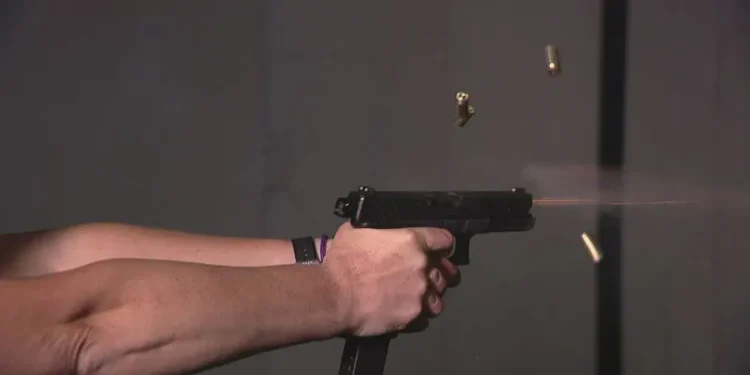Seattle City Attorney Ann Davison filed a lawsuit Tuesday against gun manufacturer Glock, alleging the company’s handgun design enables illegal modifications that convert semi-automatic weapons to fully automatic firing.
The lawsuit, filed in King County Superior Court, seeks a judicial determination that Glock handguns constitute a “public nuisance” under Washington law. The city requests that courts order Glock and firearms dealers to prevent weapons from being converted to automatic firing through devices known as “Glock Switches.”
Davison attributes a dramatic increase in gunfire incidents to these illegal modifications. “When you go to a crime scene now, instead of three or four casings that are recovered, it’s 50, 70,” she said. The city attorney argues that Glock’s design makes conversion “very easy, within minutes, very cheaply.”
The legal theory centres on Glock’s alleged knowledge of its handguns’ susceptibility to modification. “They know their design is susceptible to this conversion, and that is where our issue is,” Davison said. The lawsuit implies that this knowledge creates liability for subsequent criminal use of converted weapons.
Seattle joins jurisdictions in Minnesota, Illinois, and Maryland that have filed similar suits against Glock. This multi-state pattern suggests coordinated legal strategy aimed at addressing automatic weapon conversions through manufacturer liability rather than solely through criminal enforcement.
However, the lawsuit faces significant legal obstacles. William Kirk, a Kirkland-based firearms law attorney, argues that the 2005 Protection of Lawful Commerce in Arms Act shields manufacturers from liability when their products are used criminally. The federal law specifically protects firearms manufacturers and dealers from lawsuits related to criminal misuse of their products.
“I think this is a waste of time,” Kirk said. “The problem is not the gun manufacturer, the problem is not the lawful and responsible gun owners, the problem is the people who are committing the criminal acts.”
The legal dispute reflects broader disagreements about addressing gun violence through manufacturer accountability versus criminal enforcement. Both manufacturing and possessing Glock Switches violates federal law under the National Firearms Act and Washington state law.
Kirk emphasises that these devices are unambiguously illegal. “There is not a single gun owner right now who will tell you right now that Glock Switches are legal in any way,” he said. “Where does the problem lie? The problem lies with people installing these on firearms.”
The lawsuit’s success depends partly on whether courts accept the “public nuisance” theory as an exception to federal manufacturer protections. Legal precedent in this area remains limited, making Seattle’s case somewhat experimental in nature.
Davison frames the lawsuit within broader public safety responsibilities. “The gift we should give generations to come is a reduction in gun violence, and that means all participants have to do their part,” she said, including corporate accountability alongside prosecution and individual responsibility.
Critics question whether legal action against manufacturers addresses the core problem of illegal device installation and criminal gun use. Kirk suggested that Seattle’s approach deflects attention from enforcement issues, noting concerns about the city’s policing policies.
The case highlights tensions between different approaches to reducing gun violence. Manufacturer liability advocates argue that design changes could prevent conversions, whilst opponents contend that focusing on lawful manufacturers diverts resources from addressing criminal behaviour.
For Seattle residents, the lawsuit represents one approach to addressing rising gun violence, though its effectiveness remains uncertain given federal legal protections and the inherently illegal nature of the devices in question. The outcome may influence whether other cities pursue similar legal strategies or focus resources on alternative enforcement approaches.







